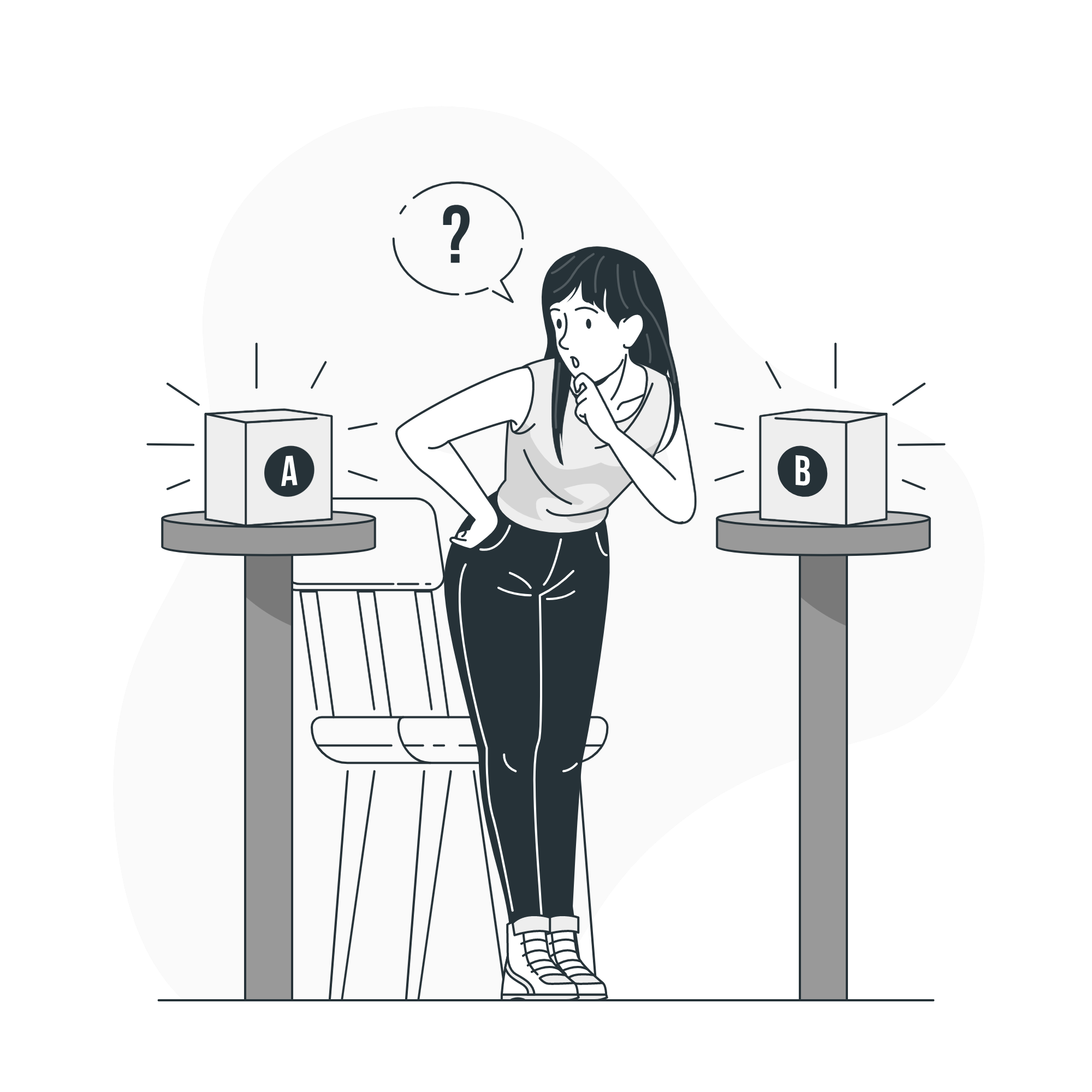The Definitive Guide to Becoming a Licensed Conveyancer

There is no denying that housing is big business with a capital B. In fact, apart from financial services, no sector contributes to the UK’s GDP more than the housing market, at a massive 15-18% of GDP!
But, unless you have been living under a rock for 15 years, I’m sure you are aware of the issues facing the housing market. There’s either not enough houses, delays in planning permission or houses that are too expensive for most to be able to afford, or all three!
Who is needed to help solve these issues? Or at least take care of the legal sides… Conveyancers!
Conveyancing is undergoing growth not seen for generations with the number of law firms entering or reentering the market doubling in the last two years and that trend is showing no signs of slowing down.
The problem? There aren’t enough licensed conveyancers to cope with demand! A lot of conveyancing is currently conducted by solicitors who are perhaps not specialists in conveyancing or have other commitments in other fields of law. That’s where the council for licensed conveyancers (CLC) comes in.
In this guide, we’ll walk you through everything you need to know about the Council of Licensed Conveyancers (CLC) and how to embark on the exciting journey of becoming a licensed conveyancer.
What are Licensed Conveyancers? And what do they do?
Licensed conveyancers are legal professionals who specialise in property law and the process of transferring property ownership from one party to another.
They are experts in all things related to conveyancing, which is basically a fancy term for the legal side of buying, selling, or transferring property. These conveyancers are licensed by a regulatory body to provide their services and ensure that everything goes smoothly during the property transaction.
Typical roles and responsibilities of a licensed conveyancer would include:
Property transactions: Licensed conveyancers handle various types of property transactions, including residential and commercial properties. They facilitate the legal aspects of the transaction, ensuring that all necessary legal requirements are met.
Title searches: Licensed conveyancers conduct thorough searches to verify the ownership and legal status of the property. This includes checking the property’s title deeds, searching for any restrictions or charges against the property, and ensuring there are no legal issues that could affect the transaction.
Drafting and reviewing contracts: Licensed conveyancers prepare and review legal documents, such as contracts of sale, leases, and other relevant agreements. They ensure that these documents accurately reflect the terms agreed upon by the parties involved and protect their clients’ interests.
Due diligence: Licensed conveyancers conduct due diligence on behalf of their clients. They investigate the property’s history, including any planning permissions, environmental concerns, or potential disputes. This helps their clients make informed decisions and mitigate any risks associated with the property.
Liaising with parties involved: Licensed conveyancers act as intermediaries between their clients and other parties involved in the transaction. They communicate with estate agents, mortgage lenders, surveyors, and other legal professionals to ensure a smooth and timely completion of the transaction.
Financial matters: Licensed conveyancers handle financial aspects of the transaction, such as managing the transfer of funds, calculating and arranging for the payment of taxes, and handling the exchange of contracts and completion of the transaction.
Licensed Conveyancer vs Solicitor – What’s the difference?
Licensed conveyancers and solicitors are both legal professionals who can deal with property law and conveyancing matters, but there are some differences between the two roles.
Here’s a comparison:

Qualification routes
Licensed Conveyancer
Licensed Conveyancers follow a specific route that involves completing accredited qualifications (the Level 4 Diploma in Conveyancing Law and Practice and Level 6 Diploma in Conveyancing Law and Practice) and obtaining a licence from the Council for Licensed Conveyancers (CLC). The great thing about the conveyancing qualifications is that each can be completed in as little as a year.
Solicitor
To become a solicitor, individuals must complete a law degree or non-law degree followed by a conversion course. Afterwards, they must complete the Solicitors Qualifying Exams (SQE), which provides practical training. Finally, they must undertake a training contract, typically two years, within a law firm or organisation approved by the Solicitors Regulation Authority (SRA).
Scope of practice
Licensed Conveyancer
Licensed conveyancers typically specialise in property law. They focus specifically on the intricacies of property transactions, land law, drafting contracts, and conducting due diligence.
Solicitor
Solicitors have a wider scope of practice and can provide legal advice and services across various areas of law. They can represent clients in court, draft legal documents, and provide legal opinions. They have the right to exercise rights of audience in all courts, meaning they can represent clients in both lower and higher courts.
Professional body
Licensed Conveyancer
Licensed conveyancers are regulated by the Council of Licensed Conveyancers (CLC).
Solicitor
Solicitors are regulated by the Solicitors Regulation Authority (SRA) and are members of the Law Society of England and Wales.
What do you need to become a Licensed Conveyancer?
To become a licensed conveyancer, there are several requirements! Now, the specific requirements may vary depending on the jurisdiction, but here are the general steps and qualifications typically needed:

Background education: To become a licensed conveyancer, you will need to have a minimum level of education, usually a set number of GCSEs (or equivalent qualifications) at a specified grade. The specific requirements may vary, but having a good foundation in English Language is typically necessary.
Approved Qualifications: You must complete the required qualifications recognised by the Council for Licensed Conveyancers (CLC). The CLC recognises specific qualifications, such as the CLC Diploma in Conveyancing Law and Practice. Qualifications like this provide the necessary knowledge and skills in property law and conveyancing.

Practical Experience: Alongside the academic qualifications, you will need to gain practical experience in a conveyancing setting. This involves undertaking a period of practical training, referred to as qualifying employment. You typically need to work under the supervision of a licensed conveyancer or solicitor and gain hands-on experience in handling conveyancing transactions. The duration of the practical experience may vary, but it generally involves a minimum of two years of work experience.
Licensing: After completing the required academic qualifications and practical training, you can apply for a licence from the CLC. The licensing process involves submitting an application, providing evidence of meeting the qualifications and experience requirements, and paying the necessary fees. Once your application is approved, you will receive a licence that allows you to practise as a licensed conveyancer.
Continued Professional Development (CPD): After obtaining your licence, you will be required to engage in ongoing professional development to maintain and update your knowledge and skills. This typically involves participating in CPD activities, such as attending seminars, workshops, or completing relevant courses, as mandated by the CLC.
What is the average Licensed Conveyancer salary?
The good news here is that a licensed conveyancer earns significantly more than the average salary in the UK. The amount you earn will be dependent on your qualifications, experience and your locations (for example, a licensed conveyancer working in London would expect to earn more).
According to studies from various employment sites:
Trainee conveyancers can expect to earn between £19,000-£24,000 per year
Newly qualified licensed conveyancers can earn around £37,500 per year
Experienced licensed conveyancers can earn around £55,000-£65,000 per year
It’s worth noting that licensed conveyancers accredited by the CLC can also become partners in conveyancing firms, or start their own conveyancing business and earn upwards of £75,000 per year!
Do I need a qualification to become a Licensed Conveyancer?
Yes, as we touched on before, to become a licensed conveyancer, you will need to obtain specific qualifications.
The most specific professional regulatory body in the UK is the Council for Licensed Conveyancers (CLC). The CLC sets the qualifications and standards required to become a licensed conveyancer, and there are two main qualifications you will need to achieve in order to become a licensed conveyancer:
- Level 4 Diploma in Conveyancing Law and Practice
- Level 6 Diploma in Conveyancing Law and Practice
What will I learn on the Level 4 and Level 6 Diploma in Conveyancing Law and Practice?
Well, essentially, you’ll learn how to be a licensed conveyancer! Both the Level 4 and Level 6 Diploma in Conveyancing Law and Practice cover a range of subjects such as contract law, tenancy law, financial considerations in conveyancing and much more!
How long does it take to train to be a conveyancer?
One of the great advantages of studying to become a conveyancer through the Level 4 and Level 6 Diploma in Conveyancing Law and Practice with Council for Licensed Conveyancers (CLC) is the time it take to complete verses qualifying to become a solicitor or a chartered legal executive. A motivated student can complete both the Level 4 and Level 6 Diploma in Conveyancing Law and Practice in around 18-24 months! So, you could be fully-qualified and in-practice in less than 2 years. Whereas qualifying as a solicitor or chartered legal executive can take 4-5+ years.
Are there any other requirements to qualify as a licensed conveyancer with the Council for Licensed Conveyancers (CLC)?
Yes, in addition to the Level 4 and Level 6 Diploma in Conveyancing Law and Practice described above, you will need to complete 1,200 hours of practical experience.
This may sound like a lot but the scope for what qualifies as practical experience is actually very broad and does not just include experience gained working as a trainee conveyancer. Check out this handy list of all jobs eligible for practical experience when completing your 1,200 hours of practical experience when looking to qualify as a licensed conveyancer.
How much does it cost to become a licensed conveyancer?
Whilst training to become a licensed conveyancer is not free, the cost of becoming qualified is significantly cheaper than training to become a solicitor, which can cost upwards of £40,000-50,000!
The average cost of becoming a qualified licensed conveyancer is £7,000, broken down into the following levels:
- Level 4 Diploma in Conveyancing Law and Practice – Average cost = £4,000
- Level 6 Diploma in Conveyancing Law and Practice – Average cost = £3,000
Will my employer pay for me to train to be a conveyancer?
Another advantage of training to become a licensed conveyancer is that your employer may be able to help cover the cost of training, the amount and the terms of this will be down to agreements you make between yourself and your employer.
Can I become a licensed conveyancer through an apprenticeship?
Alternatively, it is possible to become a licensed conveyancer through an apprenticeship at no cost to yourself or your employer! You can find excellent apprenticeship providers for licensed conveyancing on the government’s website.
Are there alternative ways to become qualified in conveyancing?
Whilst becoming a licensed conveyancer is the most direct and specific route to a career in conveyancing, it is not the only one.
You could qualify as a solicitor which would give you the right and the knowledge to specialise in conveyancing work.
You could also specialise in conveyancing whilst training to become a chartered legal executive. To achieve this you would need to complete the CILEX CPQ Foundation and CILEX CPQ Advanced level diplomas and then select the Residential Conveyancing and Commercial Conveyancing modules for your CILEX CPQ Professional level diploma.
How do I find the right Licensed Conveyancer course for me?
If you do wish to become a licensed conveyancer, you’ll need to sign up for tuition from an appropriate provider.
Whilst the cost to train is not as high as other legal professions, it still costs a fair amount of money. So you’ll want to ensure that you choose the right provider who will give you the skills to pass the exam.
Here are some of the key things to look for when choosing a CLC training provider:
1.
Find a company approved by the CLC themselves! The CLC has rigorous acceptance standards and tuition providers must evidence a track record of success. Find approved CLC course providers here.
2.
Comprehensive material that simplifies complex legal and conveyancing topics. The training provider should provide material that helps to translate complex legal and conveyancing terms into everyday language in a logical and simplified way. Helping you to break it all down and learn it effectively.
3.
Experienced and knowledgeable tutors can bring any subject to life! Look for a training provider with tutors who have experience in both teaching AND practice, this ensures you’ll get realistic advice on how to use what you are learning in practice.
If you would like to know more about becoming a member of the Council of Licensed Conveyancers, please contact us at law@astranti.com and one of our advisors will get back to you within 24 hours (weekdays only) or, alternatively, give us a call on 0800 0487 803.
Comments
Illustration by Storyset.
